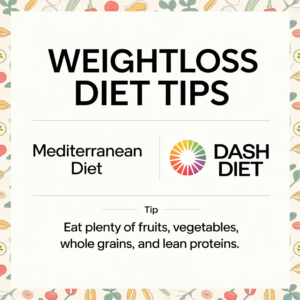The Juice Cleanse Diet for Weight Loss: A Beginner’s Guide to Detox and Cleansing
Introduction to the Juice Cleanse Diet
The Juice Cleanse Diet is a short-term, liquid detox diet that involves consuming only fresh fruit and vegetable juices for a set period, usually between 3 to 7 days. The goal of a juice cleanse is to detoxify the body, give the digestive system a break, and promote rapid  weight loss. Many people choose to do a juice cleanse to flush out toxins, improve digestion, and reset their eating habits. This liquid diet is packed with vitamins, minerals, and antioxidants from fresh produce, which help support overall health while restricting solid foods.
weight loss. Many people choose to do a juice cleanse to flush out toxins, improve digestion, and reset their eating habits. This liquid diet is packed with vitamins, minerals, and antioxidants from fresh produce, which help support overall health while restricting solid foods.
Though juice cleanses are often marketed as a detox solution, they have become popular for their weight loss benefits. In this guide, we’ll explore how the Juice Cleanse Diet works, its potential benefits, and practical tips to help you complete a successful cleanse while shedding unwanted pounds.
How the Juice Cleanse Diet Works for Weight Loss
The Juice Cleanse Diet works by replacing solid foods with liquid-based nutrients from fresh fruits and vegetables. This drastic reduction in calories helps create a calorie deficit, leading to weight loss. At the same time, the vitamins and antioxidants in the juices help support the body’s detoxification processes.
Caloric Deficit and Fat Loss
Since juices are lower in calories than most solid foods, a juice cleanse creates a significant calorie deficit. This forces your body to burn stored fat for energy, resulting in weight loss. However, the primary weight lost during a juice cleanse is often water weight, as the body releases retained fluids when processed and high-sodium foods are eliminated.
Detox and Improved Digestion
A juice cleanse is believed to aid in detoxification by giving your digestive system a break from solid foods. This allows the body to focus on eliminating waste and toxins more effectively, supporting overall health and digestion.
Key Components of the Juice Cleanse Diet
The Juice Cleanse Diet is built around consuming fresh, nutrient-rich juices made from fruits and vegetables. Here are the key components of the diet:
- Fresh Juices: You’ll consume fresh juices made from a variety of fruits and vegetables, including leafy greens, citrus fruits, berries, and root vegetables like carrots and beets.
- Duration: Most juice cleanses last between 3 to 7 days, depending on your goals and experience with fasting or detox diets.
- Hydration: In addition to juices, it’s important to drink plenty of water to stay hydrated throughout the cleanse. Herbal teas and coconut water may also be included.
Benefits of the Juice Cleanse Diet for Weight Loss and Health
The Juice Cleanse Diet offers several potential benefits for weight loss and overall health.  Here’s how it can positively impact your body:
Here’s how it can positively impact your body:
1. Rapid Weight Loss
Due to the low calorie intake, a juice cleanse can lead to rapid weight loss, often within a few days. This makes it a popular choice for those looking to kickstart a healthier lifestyle or shed a few pounds quickly.
2. Detoxification
Juice cleanses are known for their detoxifying effects, as the high concentration of vitamins, minerals, and antioxidants from fresh produce helps flush out toxins. This can lead to improved skin clarity, better digestion, and increased energy.
3. Increased Nutrient Intake
Fresh juices made from fruits and vegetables are packed with essential nutrients like vitamin C, vitamin K, and potassium. These nutrients support immune function, cardiovascular health, and overall well-being.
4. Reduced Bloating and Improved Digestion
By eliminating processed foods, dairy, and refined sugars, a juice cleanse can help reduce bloating and support digestive health. Many people report feeling lighter and more energized after completing a cleanse.
Potential Drawbacks of the Juice Cleanse Diet
While the Juice Cleanse Diet offers several benefits, there are also some potential challenges to consider:
1. Temporary Weight Loss
Much of the initial weight loss during a juice cleanse is water weight, which can be regained once solid foods are reintroduced. To maintain weight loss, it’s important to transition back to a balanced, healthy diet after the cleanse.
2. Low in Protein and Fiber
Juices are typically low in protein and fiber, which are essential for satiety and muscle maintenance. Without these nutrients, you may feel hungry, tired, or weak during the cleanse.
3. Risk of Nutrient Deficiencies
While juices provide vitamins and minerals, they lack other important nutrients like healthy fats and protein. Prolonged juice cleanses may lead to nutrient deficiencies if not done carefully.
Tips  for Success on the Juice Cleanse Diet
for Success on the Juice Cleanse Diet
To get the most out of your juice cleanse and achieve your weight loss goals, follow these practical tips:
1. Prepare Your Body Before the Cleanse
Ease into the cleanse by gradually reducing your intake of processed foods, caffeine, and sugar in the days leading up to the cleanse. This will help minimize withdrawal symptoms and make the transition smoother.
2. Choose Fresh, Organic Ingredients
To maximize the health benefits of your juice cleanse, use fresh, organic fruits and vegetables. Organic produce is free from pesticides and other harmful chemicals, making it ideal for detoxification.
3. Stay Hydrated
In addition to the juices, drink plenty of water throughout the day to stay hydrated. Herbal teas or coconut water can also be included for variety and added hydration.
4. Listen to Your Body
If you feel fatigued or dizzy during the cleanse, listen to your body and take it easy. Light physical activity, such as yoga or walking, can help keep your energy up without overexerting yourself.
5. Transition Slowly Back to Solid Foods
After completing the juice cleanse, gradually reintroduce solid foods into your diet. Start with light, easily digestible foods like fruits, vegetables, and soups before returning to regular meals.
Scientific Evidence and Case Studies
While scientific research on juice cleanses is limited, studies have shown that short-term fasting and detox diets can help reduce body weight and improve markers of metabolic health. A study in The Journal of Alternative and Complementary Medicine found that participants who followed a 3-day juice cleanse experienced significant reductions in body weight, cholesterol levels, and inflammation.
Who Should Try the Juice Cleanse Diet?
The Juice Cleanse Diet is a good option for individuals who:
- Are looking for a short-term detox or weight loss solution.
- Want to reset their digestive system and improve their overall health.
- Prefer a liquid diet that is nutrient-dense and easy to follow for a limited time.
Who Should Avoid the Juice Cleanse Diet?
The Juice Cleanse Diet may not be suitable for individuals who:
- Have underlying health conditions that require regular meals or specific nutrient intake.
- Need more protein and fiber to support muscle maintenance and satiety.
- Are pregnant, breastfeeding, or have been advised against fasting by a healthcare professional.
Conclusion
The Juice Cleanse Diet is an effective way to detoxify the body and promote rapid weight loss by replacing solid foods with fresh, nutrient-rich juices. While the cleanse offers several health benefits, including improved digestion and increased nutrient intake, it’s important to approach it with caution and listen to your body. With proper planning and hydration, the Juice Cleanse Diet can help kickstart a healthier lifestyle and support your weight loss goals.